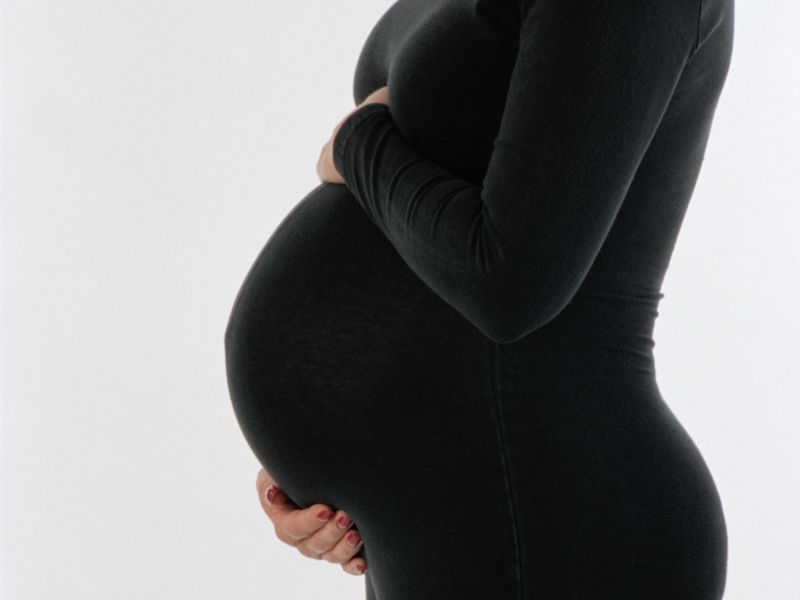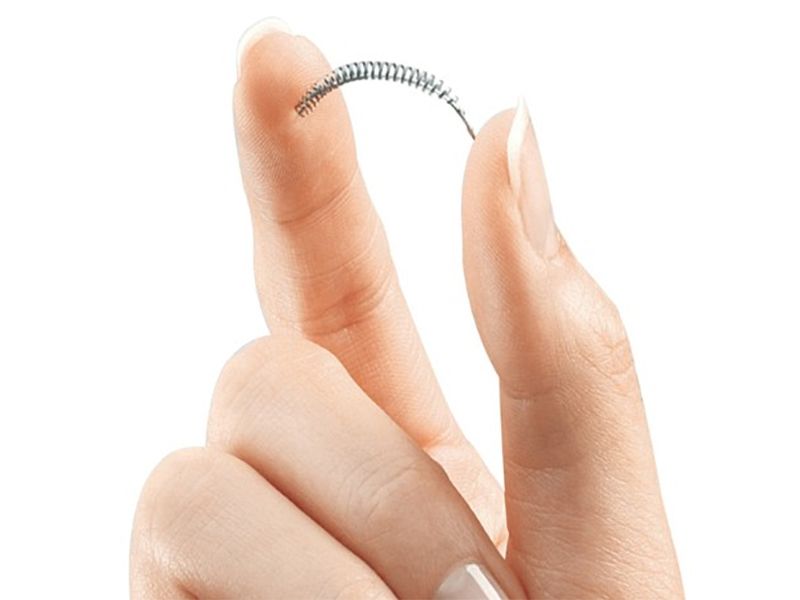|
For Breast-feeding Working Moms, Co-Workers' Support Is Key

WEDNESDAY, July 18, 2018 (HealthDay News) -- Few women consider the scary possibility that they might suffer a heart attack during or right after their pregnancy, but a new report shows it has become a more common reality in recent years.
Along with the fact that women are having children at an older age, rising rates of obesity and diabetesmay explain the increasing rates of heart attack among pregnant women, according to researchers from the New York University School of Medicine.
They found that the risk of heart attack among pregnant women increased 25 percent between 2002 and 2014, with the rate rising from 7 to 9.5 for every 100,000 pregnancies in the United States.
"Our analysis, the largest review in a decade, serves as an important reminder of how stressful pregnancy can be on the female body and heart, causing a lot of physiological changes, and potentially unmasking risk factors that can lead to heart attack," said senior investigator Dr. Sripal Bangalore. He is an interventional cardiologist and associate professor at NYU Langone Health.
Another heart expert said he would have thought the heart attack rates would have been even higher.
"Although this is an uncommon phenomenon, it is not totally surprising, given that pregnancy constitutes the ultimate cardiovascular stress test," said Dr. James Lafferty, chairman of cardiology at Staten Island University Hospital in New York City. "It is a time of increased fluid retention, heightened clotting potential and elevated cardiac output. The fact that it is not more common is surprising.
"It would seem that women having children later in life who have underlying risk factors for early cardiac disease may be the reason for this increase," Lafferty added. "It may be prudent to address cardiac risk factors earlier in this group of patients who are generally viewed as a low-risk group."
The analysis of 49.8 million births in hospitals nationwide during the study period found that 1,061 heart attacks occurred during labor and delivery, 922 occurred before birth, and 2,390 occurred in the two months after giving birth.
In addition, the death rate from heart attack among pregnant women remained relatively high (4.5 percent), despite advances in treatment for heart attack during the study period.
The risk of a heart attack during pregnancy rose with age. Pregnant women aged 35 to 39 were five times more likely to suffer a heart attack than women in their 20s. And women in their early 40s had a 10 times higher risk than women in their 20s, the findings showed.
The study was published online July 18 in the journal Mayo Clinic Proceedings.
The researchers said another possible reason for the increase is that it's easier to detect heart attacks now than a decade ago.
Study first author Dr. Nathaniel Smilowitz said the "findings highlight the importance to women considering pregnancy to know their risk factors for heart disease beforehand." Smilowitz is an interventional cardiologist and assistant professor at NYU Langone.
"These patients should work out a plan with their physicians to monitor and control risk factors during pregnancy so that they can minimize their risk," he said in a university news release.
One heart expert, who was not involved with the research, said the study raised good questions -- some of them unresolved.
"This was a very interesting study since it sheds light on an underappreciated topic of acute [heart attack] during pregnancy," said Dr. Michael Goyfman, director of clinical cardiology at Northwell Health's Long Island Jewish Forest Hills, in New York City.
"The study has several limitations, however," he added.
They include increased detection of heart trouble in recent years and not accounting for other risk factors such as congenital heart disease or other genetic diseases that can trigger heart trouble, Goyfman said.
-- Robert Preidt

Copyright © 2018 HealthDay. All rights reserved.
CONTINUE SCROLLING FOR NEXT NEWS ARTICLE
SOURCES: James Lafferty, M.D., chairman, cardiology, Staten Island University Hospital, Staten Island, N.Y.; Michael Goyfman, director, clinical cardiology, Northwell Health's Long Island Jewish Forest Hills, New York City; New York University School of Medicine, news release, July 18, 2018
First IVF Baby Louise Brown Turns 40
It's been 40 years since the birth of the first baby conceived through in-vitro fertilization (IVF), and there have been more than 8 million born since.
Brown, whose also goes by her married name of Mullinder, told reporters this week in London that she was 4 when she learned that she was conceived via IVF.Louise Joy Brown, who was 5 pounds 12 ounces when she was born in the U.K. on July 25, 1978, made global headlines and gave new hope to infertilecouples, the Washington Postreported.
Her mother was among about 280 women who were part of an IVF experiment. Only five of them became pregnant, and Brown was the only birth, the Postreported.
Today, IVF is a standard medical procedure that's a key part of the multibillion-dollar fertility industry.

Copyright © 2018 HealthDay. All rights reserved.
CONTINUE SCROLLING FOR NEXT NEWS ARTICLE
Stress Won't Undermine Fertility Treatment Success: Study
 By Alan Mozes
By Alan MozesHealthDay Reporter
THURSDAY, July 26, 2018 (HealthDay News) -- Struggles with infertility can take an emotional toll. But a new study finds the stress that a woman often experiences during infertility treatment won't limit her chances of success.
The analysis looked at 20 studies that explored the stresssurrounding infertility, a condition that touches millions of women around the world.
"Infertility and its treatment are highly stressful experiences that can cause substantial emotional distress," explained senior study author Marci Lobel, director of the program in social and health psychology at Stony Brook University in New York.
Prior research has shown that "the inability to conceive leads some women to feel different, defective or out of step with their peers, resulting in loneliness, depression or anxiety," she noted.
"Feeling that one's emotional distress is somehow responsible for treatment failure only adds to the anguish experienced by many infertile women," Lobel added.
But, she said, the review found "that women's emotional distress is not associated with poorer treatment outcomes," regardless of age, prior treatment history or how long a woman has been infertile.
The researchers noted that roughly 70 million women worldwide are infertile, meaning they are unable to conceive after a full year of trying. In the United States alone, that figure is about 1.5 million.
Approximately half of these women will end up seeking infertility treatment, with the two most common being in-vitro fertilization (IVF) and intracytoplasmic sperm injection (ICSI).
Many meet with success. Just over a third of all European patients who undergo IVF become pregnant, while more than half of all IVF-assisted women under the age of 35 in the United States ultimately deliver a baby.
But that figure drops with age, with less than a 7 percent success rate among American women over the age of 42. Treatment can also prove to be an arduous and lengthy experience, involving repeated blood testing, hormone injections, ultrasounds and surgical procedures. It's also expensive, costing American women between $10,000 and $15,000, depending on individual insurance and location.
That the experience is stressful is not the question. But the new research looked at whether that stress affects outcomes.
Taken together, the studies involved more than 4,300 women, at an average age of 30 to 36. Some investigations had tracked anxiety, depression and stress levels before fertility treatment began, while others looked at anxiety and depressionduring treatment.
In the end, the Stony Brook team found no connection between any form of emotional distress and an increased risk that fertility treatment might not work.
The findings were published recently in the journal Social Science and Medicine.
Lobel noted that even if there is no detrimental impact on outcomes, "there is a pressing need to alleviate distress associated with infertility, infertility treatment and treatment failure."
"Stress management and coping skills training may help reduce the considerable personal impact of infertility and its treatment. In fact, many couples cease treatment because of the intensity of strain they experience," Lobel said. "What is at stake for many women and their partners is the ability to fulfill a vital life goal of bearing children."
Those thoughts were seconded by Dr. Jennifer Kawwass, medical director of the Emory Reproductive Center in Atlanta.
Even the most relaxed couples will find that "the infertility journey has [the] potential to be incredibly stressful for both individuals in a relationship," she said. And ascertaining how that stress will manifest in terms of pregnancy outcomes can be very difficult, she added.
"Nonetheless, it is reassuring that no difference in outcomes was observed between those under differing degrees of stress," Kawwass said.
Dr. Norbert Gleicher, medical director and chief scientist at the Center for Human Reproduction in New York City, agreed that "the [study] results have to be interpreted with caution." But he also suggested that the findings weren't that surprising.
"If stress really affected outcomes we would know it," he said, explaining that women have become pregnant in the midst of all kinds of high-stress catastrophic disasters, whether natural or man-made.
"Of course, stress probably does have an effect at the margins," added Gleicher, who is also president of the Foundation for Reproductive Medicine.
"And stressing about the stress will make things worse for the patient. So when patients ask what they need to change to have a better chance at pregnancy, I always say change nothing. Changing your daily routine will increase stress. So try to live your regular life," he advised.

Copyright © 2018 HealthDay. All rights reserved.
CONTINUE SCROLLING FOR NEXT NEWS ARTICLE
SOURCES: Marci Lobel, Ph.D., professor, psychology, and director, program in social and health psychology, department of psychology, Stony Brook University, Stony Brook, N.Y.; Norbert Gleicher, M.D., medical director and chief scientist, Center for Human Reproduction, president, Foundation for Reproductive Medicine, and researcher, Rockefeller University, New York City; Jennifer Kawwass, M.D., medical director, Emory Reproductive Center, and assistant professor, division of reproductive endocrinology and infertility, Emory University, Atlanta; July 13, 2018, Social Science and Medicine
Bayer Stops U.S. Sale of Essure Birth Control Implant
 By E.J. Mundell
By E.J. MundellHealthDay Reporter
FRIDAY, July 20, 2018 (HealthDay News) -- Amid lawsuits and plummeting sales for its Essure birth controldevice, drug giant Bayerannounced Friday that it would cease U.S. sales of the product by the end of 2018.
"This decision is based on a decline in U.S. sales of Essure in recent years and the conclusion that the Essure business is no longer sustainable," Bayer said in a statement. The United States was the last country in which Bayer marketed Essure, the Washington Postnoted.
The announcement comes after years of claims by thousands of American women who used the implant that Essure caused serious problems. Those problems include chronic pain and perforations of the uterus and fallopian tubes.
Essure is made of two inch-long flexible metal coils. In a short procedure, doctors insert the device via the vagina and cervix into the fallopian tubes. Then, scar tissue slowly forms around the implant, blocking passage of the egg from the ovaries to the uterus via the fallopian tubes.
But claims by users that Essure "migrated," causing pain or unintended pregnancies, have plagued the device, and sales have fallen by 40 percent over recent years, the Post said.
Bayer denies that Essure is unsafe or ineffective, and in Friday's statement said that women currently using the product can "confidently" rely on it.
Critics of the device are numerous, however, and a 37,000 member-strong FaceBook group called "Essure Problems" has long pressured the U.S. Food and Drug Administration to ban the device.
While the agency has said that Essure's benefits outweigh its risk, it did slap a "black box" warning on the implant in 2016, and ordered more safety studies. And in February, the FDA ordered that Essure only be sold through doctors who guaranteed that women were being fully informed about risks connected to the device.
In a statement released Friday, agency Commissioner Dr. Scott Gottlieb said that "even when Essure is no longer sold, the FDA will remain vigilant in protecting patients who've already had this device implanted." That includes monitoring "adverse event" reports and holding Bayer to its promise to conduct further safety studies.
"I also want to reassure women who've been using Essure successfully to prevent pregnancy that they can continue to do so," he said.
"Those with Essure who suspect they may be having symptoms related to the device, such as persistent pain, should consult with their doctor on what steps may be appropriate for them to take," Gottlieb continued. "Device removal has its own risks. Patients should discuss the benefits and risks of any operation or procedure with their health care providers before deciding on the best option for them."

Copyright © 2018 HealthDay. All rights reserved.
CONTINUE SCROLLING FOR NEXT NEWS ARTICLE
SOURCES: U.S. Food and Drug Administration, news release, July 20, 2018; Washington Post
For Breast-feeding Working Moms, Co-Workers' Support Is Key

Study author Joanne Goldbort, an assistant professor at Michigan State University College of Nursing, said co-worker support is critical for several reasons.SATURDAY, July 21, 2018 (HealthDay News) -- The support of co-workers is crucial for new mothers who want to continue breast-feeding after returning to work, a new study finds.
In the workplace, a breast-feeding woman "has to work collegially with co-workers, gain their support to assist with the times she's away from her desk, and ultimately try to lessen the 'you get a break and I don't' stigma," Goldbort said in a university news release.
"If women know that co-workers and supervisors will support them in their breast-feeding efforts, it can make a big difference," Goldbort added. "It really takes a village to breast-feed a baby."
The study included more than 330 new mothers who continued breast-feeding after going back to their jobs. Of those, more than half stopped breast-feeding within six months.
The study didn't examine why they stopped breast-feeding, but did ask the women about co-worker support.
Overall, it appeared that simply returning to work was a major factor in a woman's decision to stop breast-feeding, but co-worker support was important for those who continued to nurse their babies.
The study also found that more than one-quarter of mothers who tried to continue breast-feeding after returning to work did so because their workplace offered a supportive environment, such as providing a place to pump breast milk.
About 15 percent said they kept breast-feeding because they had co-workers or supervisors who encouraged them to do so, according to the report.
The findings suggest that co-worker support is equal to or even more important than support from family and close friends.
The results were published recently in Health Communication.
-- Robert Preidt

মন্তব্যসমূহ
একটি মন্তব্য পোস্ট করুন